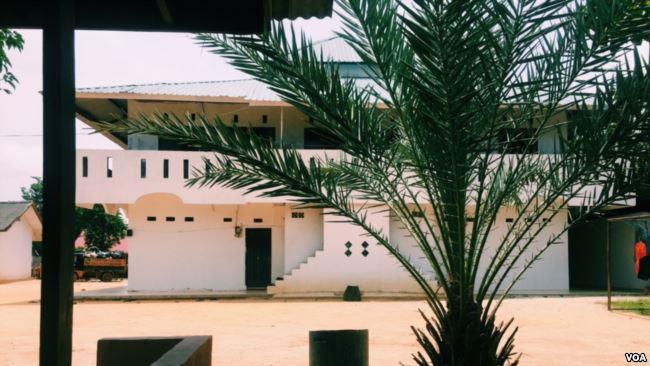Lesson Plan May 23, 2017
Understanding Religion, Power, and Democracy vis-à-vis Salafism
Country:
Grades:
Salafism à la Southeast Asia Questions
- What is a pluralistic democracy?
- What is Salafism?
- What is jihad?
- What developments are threatening the democracy in Indonesia?
- Who is responsible for motivating these developments?
- How has Saudi Arabia gained power in Indonesia? What actions has Saudi Arabia taken in Indonesia?
- What is meant by “religious attaché”?
- What is Shariah law?
- How has Salafism taken root in dangerous ways in Indonesia?
- Why is it important to understand how Saudi Arabia influences Indonesian culture?
Salafi Movement Grows on Indonesia’s Batam Island Questions
- Why is Batam Island uniquely situated to allow Salafism to flourish?
- What are the two Salafi establishments leading change on Batam Island?
- What is the disagreement over the content on Hang Radio?
- What evidence is provided to support either side of the disagreement?
- How far is the reach of Hang Radio? Why do you think this is important?
- What is a pesantren?
- What is the connection between Hang Radio and Indonesia’s political framework?
- What other technologies are being used to spread Salafism?
- From what you learned in the article, do you agree that Salafism is under control? Why or why not?
- How do you feel about what you learned?
Saudi Arabia is Redefining Islam for the World’s Largest Muslim Nation Questions
- Why is Saudi Arabia’s King Salman’s visit to Indonesia significant?
- What did officials in Jakarta hope for from the visit? Did those things happen?
- What have Saudi Arabia’s goals been for the past few decades in Indonesia?
- What actions has Saudi Arabia taken to accomplish these goals?
- How is Salafism described in the article?
- How would you describe LIPIA?
- What is a caliph?
- What is the hajj quota and why is it important?
- What was the first policy objective of the visit?
- What is attracting female extremists and ISIS sympathizers to Salafism?
- What is the connection between Salafism and jihadism?
- What are the perceived benefits of a closer relationship between Saudi Arabia and Indonesia?
- How do you feel about what you learned?
Investigate the World: Investigate the world beyond your immediate environment
- Warm up: Do a class whip around. Stand in a circle and one-at-a-time, loudly state the first word that comes to mind. Go around on the following terms until there are no more ideas to be shared. Divide larger classes into two circles.
- Religion
- Power
- Democracy
- Create a class list of questions on the relationship between religion and power. Hang in a visible classroom location.
- Launch and explore this interactive world religions map by PBS. Take notes of new observations and understandings. Share with a partner.
- Read the main section of the Democracies in the World page.
- Click on and explore the Democracy Map. Use the forward button for directions on each page. Record observations and understandings. Share with a partner.
- Read about religion and power here.
Recognize Perspectives: Recognize your own and others' perspectives
- Understand the First Amendment and United States citizens' right to freedom of religion. Watch the video Freedom of Religion: Government and Politics Crash Course #24. Write down examples of Supreme Court decisions related to religion.
- Have informal class debates on Supreme Court decisions mentioned in the video.
- Examine and discuss maps #37 and #38 from 40 Maps that explain the world. Add new information and understandings to your notes.
- Read about the project Salafism à la Southeast Asia. Answer the questions on the right, then discuss as a class.
- Pick one of the two following articles to read in pairs. Answer the questions that correspond with each article on the right.
-
Partner with someone who read the other article. Share new learning. Together, come up with a summary of both articles.
Communicate ideas: Communicate your ideas effectively with diverse audiences
- Choose one of the following questions to answer:
- What factors in our environment are weakening our democracy? What should be done about it?
- Do you think the separation of church and state weakens religion or strengthens it? Why?
- Are there groups in your community that are misunderstood by others? What should others know?
- Is there another issue related to religion and power that you would like to explore?
- Who (what audience) would benefit from the information?
- What kind of product would best communicate your information to your intended audience?
Take Action: Translate your ideas into appropriate actions to improve conditions
- Create your product.
- Share with two or more classmates. Use their feedback to improve your product.
<h4>CCSS.ELA-LITERACY.RH.9-10.2</h4>
<p>Determine the central ideas or information of a primary or secondary source; provide an accurate summary of how key events or ideas develop over the course of the text.</p>
<h4>CCSS.ELA-LITERACY.RH.9-10.4</h4>
<p>Determine the meaning of words and phrases as they are used in a text, including vocabulary describing political, social, or economic aspects of history/social studies.</p>
<h4>CCSS.ELA-LITERACY.RH.11-12.2</h4>
<p>Determine the central ideas or information of a primary or secondary source; provide an accurate summary that makes clear the relationships among the key details and ideas.</p>
<h4>CCSS.ELA-LITERACY.RH.11-12.4</h4>
<p>Determine the meaning of words and phrases as they are used in a text, including analyzing how an author uses and refines the meaning of a key term over the course of a text (e.g., how Madison defines faction in Federalist No. 10).</p>
<h4>CCSS.ELA-LITERACY.SL.9-10.1</h4>
<p>Initiate and participate effectively in a range of collaborative discussions (one-on-one, in groups, and teacher-led) with diverse partners on grades 9–10 topics, texts, and issues, building on others’ ideas and expressing their own clearly and persuasively.</p>
<h4>CCSS.ELA-LITERACY.SL.9-10.4</h4>
<p>Present information, findings, and supporting evidence clearly, concisely, and logically such that listeners can follow the line of reasoning and the organization, development, substance, and style are appropriate to purpose, audience, and task.</p>
<h4>CCSS.ELA-LITERACY.SL.9-10.1</h4>
<p>Initiate and participate effectively in a range of collaborative discussions (one-on-one, in groups, and teacher-led) with diverse partners on grades 9–10 topics, texts, and issues, building on others’ ideas and expressing their own clearly and persuasively.</p>
<h4>CCSS.ELA-LITERACY.SL.11-12.4</h4>
<p>Present information, findings, and supporting evidence, conveying a clear and distinct perspective, such that listeners can follow the line of reasoning, alternative or opposing perspectives are addressed, and the organization, development, substance, and style are appropriate to purpose, audience, and a range of formal and informal tasks.</p>
<p> </p>
REPORTING FEATURED IN THIS LESSON PLAN
-
×
 English
English -
 English
EnglishProject
Salafism à la Southeast Asia
An inside look at how Saudi Arabia uses money, scholarships, diplomacy, and media to propagate its...








